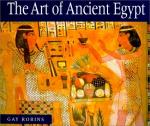|
This section contains 882 words (approx. 3 pages at 300 words per page) |

|
Divine Status. The king of Egypt was the only living person who possessed the status of netjer. He could be called "the good god," the "great god," or simply "god." Because of the king's special status, he could serve as the link between the worlds of the gods and of men. The king was the only mortal who could directly approach the gods. The temples throughout Egypt show only the king performing the rituals. This image was a polite fiction, because in reality the king commissioned the priests to act in his stead. The king's "divinity," however, is different from that of the gods. The king's divinity is an acquired status, bestowed when he ascends the throne. Beginning with his coronation, and extending throughout his reign, the king participates in rituals whose purpose is to reinforce and strengthen his divine status.
Descriptions. The...
|
This section contains 882 words (approx. 3 pages at 300 words per page) |

|




